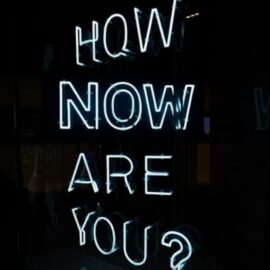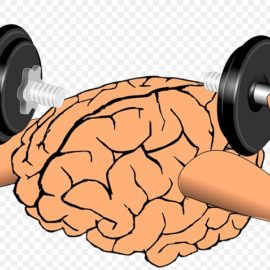

This article is an excerpt from the Shortform book guide to "The Book" by Alan Watts. Shortform has the world's best summaries and analyses of books you should be reading.
Like this article? Sign up for a free trial here.
How does the language people use reflect and impact the way they see themselves? Is there an inherent flaw in Western science?
According to Alan Watts, the ego is the culprit behind the ills of Western society. In The Book, he argues that Western society perpetuates “the ego illusion” through the language people use, the expectations they place on each other, and even the way they approach science.
Continue reading to understand Watts’s argument regarding ego in the West.
Alan Watts on the Ego Illusion
According to Alan Watts, the ego must be abandoned if people in Western society are to realize their true nature and stop causing damage to themselves and the world around them. He argues that the idea of humans as separate beings is an illusion: the ego illusion. According to Watts and the Vedanta spiritual philosophy, each of us is a manifestation of one Cosmic Being that encompasses everything in the universe.
How does an entire culture maintain this false idea about the nature of existence? Watts claims that the myth of the individual ego is reinforced by language and by having a narrow scope of attention that focuses on components rather than connections. Then, the ego illusion manifests in Western society through paradoxical cultural expectations for each person to be an individual.
Language & a Narrow Scope of Attention
First, Watts asserts that Westerners create the ego illusion by putting boundaries on things that don’t really have them and by narrowing their field of view. For example, people create a false boundary when they refer to a river as one discrete object, even though it’s constantly changing in composition, shape, and size.
(Shortform note: This idea that everything is constantly changing is called the philosophy of flux. The ancient Greek philosopher Heraclitus popularized this idea with the paraphrased quotation “You can’t step into the same river twice.” However, unlike Watts, who argues that the river isn’t an individual entity at all, Heraclitus argued that the fluctuating nature of the river is what fundamentally gives it its long-term identity as a river as opposed to a lake.)
In terms of humans, most languages use some sort of “I” pronoun and nouns that define organisms as separate entities that perform actions. However, as explained in the previous section, Watts says nothing exists in isolation, so when Westerners speak about the self, they’re actually narrowing their field of view to the human body and falsely referring to it as a separate ego. He notes that even human skin is highly dynamic and is more like a connection to the environment rather than a rigid boundary.
(Shortform: Contrary to Watts’s argument that English personal pronouns reinforce the ego illusion, there are also personal pronouns in Eastern languages associated with non-dualist cultures. These include Sanskrit—now considered a dead language—in which non-dualist philosophy was originally written, as well as Hindi and other languages based on Sanskrit. This suggests that language can contribute to the notion of the “self” as separate from others, but doesn’t necessarily do so.)
Western Science Is Reductive
Watts uses Western science as another example of how Westerners narrow their scope of attention and create the illusion of separateness. Because science focuses on reducing things to their parts and analyzing how those parts work, Westerners imagine the phenomenon of cause and effect. Watts writes that the concept of cause and effect is another example of the ego illusion since the Cosmic Being is one unified process with no cause and effect (similar to the way a circle has no beginning or end).
Watts explains that, just like the head and tail of a cat are interlinked, all events and organisms exist mutually, with no singular cause or effect. Despite the tendency in science to focus on individual components, we can only understand things in context. Watts emphasizes that things can be separated only in linguistic terms, and Westerners confuse the name for the true identity of something.
Societal Conditioning
Watts explains how Western society perpetuates the ego illusion through underlying community expectations for each person to be independent. Society reinforces the mandate for individuality by using expressions like “Be yourself,” or “That’s not like you.” Watts writes that everything about a person is transferred to them from society—our genetics, our cultural beliefs, our language—yet Western society tells people they’re separate individuals.
This creates a paradox where society demands that everyone be an individual, but the fact that the mandate comes from society means that people are inherently linked to society and defined by it. Therefore, Western society is based on a contradiction—a situation Watts refers to as the “double-bind.”

———End of Preview———
Like what you just read? Read the rest of the world's best book summary and analysis of Alan Watts's "The Book" at Shortform.
Here's what you'll find in our full The Book summary:
- Why the concept of humans as separate beings is an illusion
- Why Westerners must release their egos to end some of society's biggest problems
- How people can escape from the ego illusion






